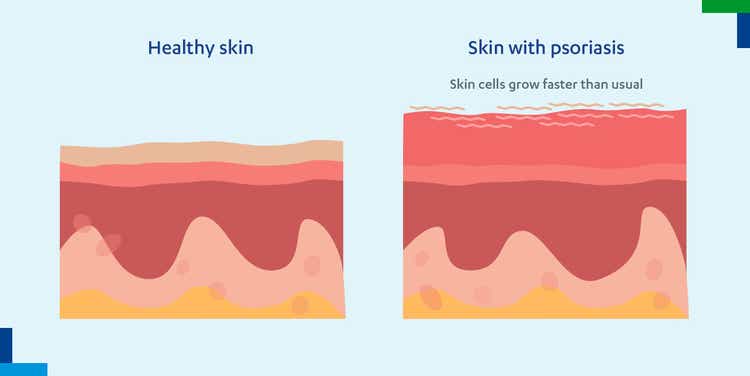What is Pso?
What is Pso?
Psoriasis [pronounced sorr-eye-iss-iss], also called Pso, is a chronic, or ongoing, disease that can appear anywhere on the body.2 Psoriasis most commonly affects the skin, but can also affect the nails.2 If you also have swollen, stiff or painful joints, you may have a form of inflammatory arthritis called psoriatic arthritis [pronounced sorr-eye-att-ick arth-rye-tiss] that can affect people with psoriasis.34
In Pso, skin cells are replaced every 4-7 days, instead of the usual 21-28 days5
In Pso, the body’s immune system gets ‘confused’ and attacks itself, making new skin cells grow and build up above and just below the surface of the skin.267 This creates thick red or swollen patches of skin covered in silvery scales called ‘plaques’ that you may recognise.78 These inflamed patches can become itchy and bleed,79 affecting either small or large areas of skin,8 but it’s important to remember that Pso isn’t contagious.5

How psoriasis works510
Pso affects at over 100 million people around the world
Moderate to severe Pso increases the risk of heart disease and stroke. Psoriasis is also associated with diabetes, obesity, high blood pressure, inflammatory bowel disease, and there is a small increased risk of skin cancer.11
You may be interested in

Make every moment of the consultation really count.

Get quick answers to the most common questions about psoriasis.

Find out which doctors and tests you’ll encounter.
